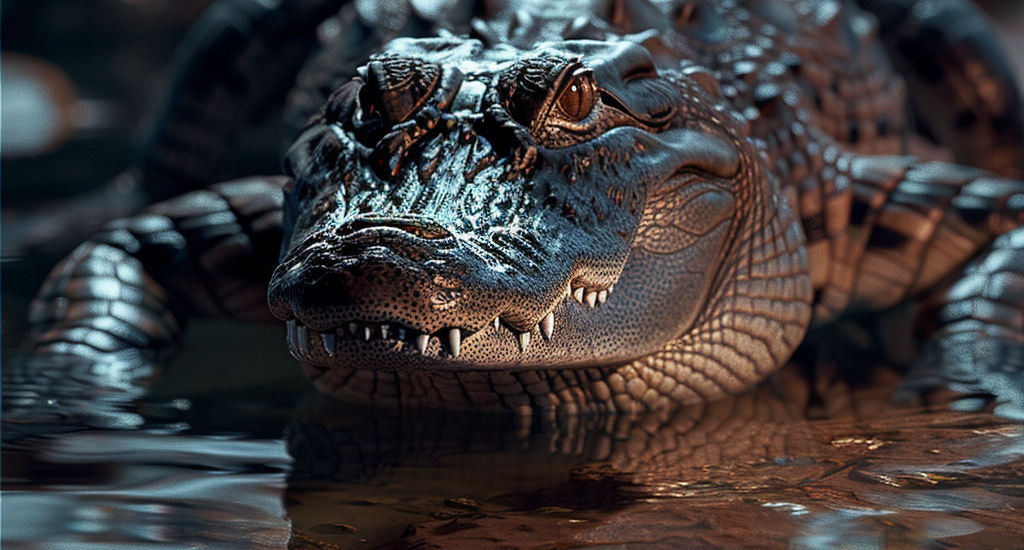When you’re out in the wild hunting, it’s easy to forget that you might not be the only predator around. Nature is full of dangers, including other predators that might see you as prey. Here’s how to keep yourself safe and ensure you stay the hunter, not the hunted.
1. Know Your Environment
Research Local Wildlife
- Identify Predators: Know what dangerous animals inhabit the area.
- Understand Behavior: Learn about their habits and patterns.
Why It’s Important
- Stay Alert: Knowing what to expect keeps you vigilant.
- Avoid Danger Zones: Stay away from areas frequented by predators.
2. Stay Aware of Your Surroundings
Constant Vigilance
- Look and Listen: Continuously scan your surroundings.
- Stay Silent: Minimize noise to avoid attracting predators.
Why It’s Important
- Early Detection: Spot potential threats before they get too close.
- React Quickly: Have time to prepare and defend yourself if necessary.
3. Use Proper Camouflage and Scent Control
Blend In
- Camo Clothing: Wear camouflage that matches the environment.
- Scent Elimination: Use scent-blocking sprays and soaps.
Why It’s Important
- Avoid Detection: Predators are less likely to notice you.
- Stay Hidden: Reduces chances of being tracked by predators.
4. Travel in Groups
Safety in Numbers
- Buddy System: Always hunt with at least one other person.
- Communication: Keep in regular contact with your group.
Why It’s Important
- Intimidate Predators: Predators are less likely to approach groups.
- Immediate Help: Someone can assist if you’re injured or in danger.
5. Carry a Reliable Firearm or Weapon
Self-Defense
- Choose Wisely: Carry a firearm suitable for self-defense against large predators.
- Stay Ready: Keep your weapon accessible at all times.
Why It’s Important
- Protect Yourself: Defend against aggressive wildlife.
- Peace of Mind: Feel safer knowing you can protect yourself.
6. Set Up a Secure Camp
Camp Safety
- Elevated Sites: Camp on high ground to avoid surprise attacks.
- Perimeter Alarms: Use tripwire alarms to detect intruders.
Why It’s Important
- Early Warning: Alarms alert you to approaching predators.
- Reduce Risk: High ground provides better visibility and fewer access points.
7. Use Light and Noise Wisely
Tactical Use
- Flashlights and Headlamps: Use lights to deter nocturnal predators.
- Noise Makers: Carry whistles or air horns for emergencies.
Why It’s Important
- Deter Predators: Bright lights and loud noises can scare off wildlife.
- Emergency Signals: Attract help if you’re in danger.
8. Understand Predator Behavior
Behavioral Insights
- Feeding Times: Know when predators are most active.
- Territorial Signals: Recognize signs of territorial behavior.
Why It’s Important
- Avoid Peak Times: Hunt during times when predators are less active.
- Steer Clear: Stay away from areas marked by predators.
9. Stay Connected
Communication Devices
- Two-Way Radios: Stay in touch with your hunting group.
- GPS and Emergency Beacons: Use devices to signal for help if needed.
Why It’s Important
- Instant Communication: Quickly alert others if you encounter danger.
- Locate Each Other: Ensure everyone can be found in an emergency.
10. Trust Your Instincts
Intuition Matters
- Gut Feelings: Pay attention to feelings of unease.
- Back Out: If something doesn’t feel right, leave the area.
Why It’s Important
- Prevent Incidents: Trusting your instincts can help avoid dangerous situations.
- Stay Safe: Your intuition is a powerful tool for survival.
Conclusion
Hunting can be a thrilling experience, but it’s essential to stay aware of the potential dangers and protect yourself from becoming prey. By following these tips, you can enjoy your hunting trips safely and confidently. Stay vigilant, stay prepared, and happy hunting!


